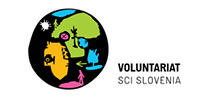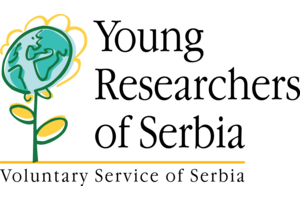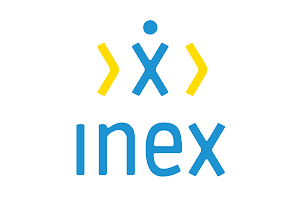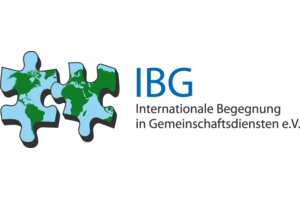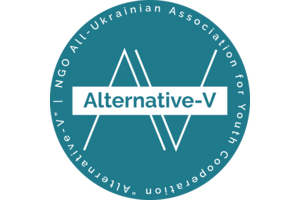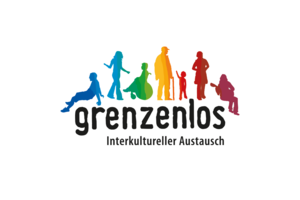Impact of volunteering on personal development
What seems to be the impact of volunteering?
While the impact of volunteering on society and its development is undoubted, it is less known that the society is not the only one to benefit from volunteering. Here, we have decided to focus on questions what kind of impact volunteering makes on the volunteer itself, how can we measure it and use it for assesing the quality of volunteering programs they have participated at.
What are the benefits for the volunteer?
The list of all potential benefits is not definite, depending from concrete circumstances and the volunteering experience. However, we could single out some of the key benefits one has from volunteering experience.
Read more
Volunteering increases self-confidence and motivation and provides sense of purpose.
Working for a cause we believe in, gives both support to a cause and boosts personal motivation as a driver towards satisfying future.
Fulfilment in doing something for common good, helping others, supporting values we believe in – helps improving ones’ mental health.
Through volunteering, one gains experience and has opportunity to show his/her own skills and knowledge. Also, developing new skills and improving existing ones is one of the most precious part when it comes to practical benefit used in any sphere of live.
Additionally, volunteering activity gives us the opportunity to try out new roles, explore various topics – with no necessity for expertise, do something we love, but haven’t had a chance before… The sky is the limit!
Volunteering connects us to others - commitments to a shared value brings people together.
Joining volunteering activities can help us increase our social skills, such as communication, empathy, mutual understanding and much more.
When volunteering abroad, aware of it or not, we are involved in intercultural learning. This happens whenever we expose ourselves to new surrounding - when we are "out of the box".
By meeting new people from different countrises and societies, we are actually exploring new contexts, countries, cultures and what is the most important - ourselves. Gained experience and knowledge, developed skills and all that we accomplish by voluteering gives us green light for looking for a job and career advancement, as well as in any other surrounding.
Join the community of voluteers and you will see benefits!
How can we tell?
Are we (trainers, youth workers and organizators of volunteering) the ones who should track the progress of volunteers involved in our programs, or that is beyond our concern?
Should we aim to develop meaningful programs – we have to take care they are the ones to answer to both needs of community and volunteers. As discussed above, volunteering is potentially very beneficial activity for self development of volunteer.
How could we measure success of our voluntary programs in terms of impact made on volunteers? There are several tools you can use to ask the right questions and get reflection on program impact. Some of the options are listed below.
(Dis)satisfaction of your volunteers is important indicator if you are utilizing them in the correct way. Is the voluntary experience overwhelming for them? Do they make the most with their skills?
Maunuel Campagnoli, CC BY-SA 4.0 https://creativecommons.org/licenses/by-sa/4.0, via Wikimedia Commons
2. Educate volunteers on competences and progress tracking
Moderate their progress: starting from self-assessment; running continuous and final evaluation of progress. Some of the activities you might use are available in this Handbook:
- What is competence? Intro 1
- What is competence? Intro 2
- Orientation game
- Creative Competence Reflection Performance
- 3xWhat
- Mirror reflection
- Frankenstein
- Mandalas/Beads
- Intro to the IMPROVE application
3. Track the progress and achievements of your volunteers
Have you ever checked if the development of your volunteers matches with competencies your program aims to develop?
Truly, tracking once development can be a demanding task, but there are free tools you can use. IM-PROOVE app is certainly a great solution.![]()
- For short-term activities:
Present the app to the volunteers before the start of the activity. At the end of the activity, the volunteers can use the app and define which competences did they gain. - For long-term activities:
Present the app to the volunteers before the start of the activity. Make regular reminders and support for volunteers to revise their progress and fill the app after each stage of the project. At the end of the activity, the volunteers can use the app and sum up their progress. Thus, you’ll have a clear idea how did your activity impact their development.
4. Track New and Repeat Volunteers
Find out how do volunteers find your organization and programs they apply to. Examine what percent of volunteers are joining more than one project within the organization (repeating the volunteering) to determine the retention rate. The number of repeat volunteers is important indicator of impactful program. It is beneficial for your organization as well. Each time your volunteers come back, this means you have fewer costs associated with training and onboarding them into your programs – and more money for your mission. Help your volunteer recruitment process – nevertheless they might leave the organization, this support is valuable for volunteers and they will appreciate it.
5. Follow Your Project Outputs
Volunteers play a key role in maintaining the success of programs they take part in. Start from your program outputs, the level of reaching set results can help you better understand the impact your volunteers are having on your organization.
Finally, share the insights of your findings. Community of volunteers is curious to know if their work and time is making an impact. To prove their engagement valuable, you can rely on metrics and data analyses. Communicating the impact of volunteer work in your organization will help you retain volunteers and enable them to feel the part of success.
Does the labour market want to know?
It’s a good question - the same one we have asked few years ago. INEX-SDA together with Zavod Voluntariat has done a research on how does labour market perceive volunteering. Here are some results relevant for you.
- Volunteering is seen in both Czech Republic and Slovenia as beneficial to both the employees and the companies. To the employees, skills development, teambuilding and socializing effects are seen as the biggest assets; while to the companies, the resulting PR potential is seen as important.
- Volunteering experiences increase loyalty of the employees towards their employers, since they are provided with a meaningful activity above the framework of the working contract.
- Offering satisfactory volunteering experience can positively affect the work performance of the employees, combining all positive effects: skills gain (organizational and communication skills, creative thinking, etc.), socialization impacts, valuable personal development (self-confidence, determination, openness, etc.), and the overall boost in loyalty of the employee.
When it comes to job applicants, it is seen as important in both countries, that any experience, including the volunteering one, should be related to the working position the person is applying for; and in both countries, the volunteering experience is seen as rather valuable especially to the young people with no or little previous working experience (e.g. fresh graduates, etc.), who are therefore able to show favourable personal attributes, such as willingness to work, or a proactive attitude.
On the other hand, while companies based in the Czech Republic usually do not enquire about the volunteering experience of their job applicants, in Slovenia-based companies, the volunteering is one of the topics often touched-upon during the job interview. Volunteering experience is in this context usually considered to be a positive factor and is taken as an advantage of the job applicant.
Recommendations for the volunteers
Engage in company volunteering.
Reports from both countries show, that company volunteering has a positive potential for personal and professional development of the employees. Like any volunteering, it cannot exist in absence of initiative. If your company already provides volunteering opportunities, use them. If not, ask for them and initiate them.
Utilize the information to your advantage during job hunt.
In both countries, the findings suggest that simply stating all and any volunteering experience when applying for a job is not enough. Potential job applicants should pick particular volunteering experience to mention in their CVs and during the job interviews, in order to maximize the profits of such experience. This experience should always be linked to the position the applicant is running for.
Stress the creative volunteering experiences.
Job applicants, especially in Slovenia, with long-term volunteering experience might put a special emphasis on their own initiatives within such experience, in order to avoid being perceived as less entrepreneurial than their peers. Examples of such initiatives within their volunteering experience might be included into their CVs (e.g. as a special achievement listed at the volunteering position) and should be presented during the job interview as well.








